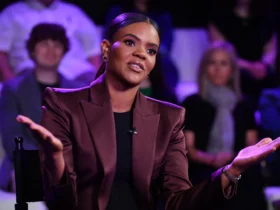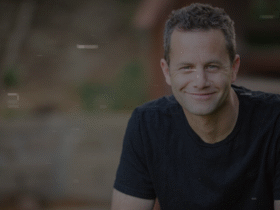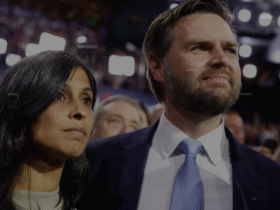Harrison Bader stance on Israel has become increasingly clear after his recent confirmation to represent Team Israel at the 2026 World Baseball Classic has reignited scrutiny, not just of his baseball career, but of his public silence amid one of the most devastating military offensives in modern times. While Bader wears symbols of Jewish pride and visibly aligns himself with Israel, he has avoided addressing the atrocities in Gaza, where over 38,000 Palestinians have died since October 2023, many of them civilians and children.
Bader’s support for Team Israel goes beyond personal heritage. His choice to represent a nation accused of genocide by international legal bodies raises difficult questions about moral responsibility and whether symbolic gestures, like wearing a Star of David belt or a hostage necklace, can exist outside of a political context.
Harrison Bader’s Commitment to Team Israel
Harrison Bader’s decision to join Team Israel for the 2026 World Baseball Classic represents a significant personal commitment that goes beyond just another baseball tournament. The New York Mets outfielder has embraced this opportunity with enthusiasm after missing his chance in the previous competition.
Why did he choose to play in 2026
Bader’s choice to represent Israel stems from his connection to his Jewish heritage through his father’s side of the family. Throughout his career, Bader has gradually become more comfortable expressing this aspect of his identity. As an established MLB player with experience on multiple teams, including the Yankees, Cardinals, and now the Mets, Bader brings valuable big-league experience to the Israeli roster.
Additionally, the timing works well with his career trajectory, as he’ll be in his prime playing years during the 2026 competition. By representing Israel, Bader also gains an opportunity to participate in international competition that might not have been available to him through Team USA, given the depth of American outfield talent.
His missed opportunity in 2023
The 2023 World Baseball Classic was supposed to be Bader’s first appearance with Team Israel. Unfortunately, injury concerns prevented his participation, a disappointment for both the player and the team. At that time, Bader was recovering from plantar fasciitis, which had affected his performance and availability.
This setback only strengthened his resolve to represent Israel in the future. During his recovery period, Bader maintained contact with Team Israel management, expressing his continued interest in representing the country when physically able.
What does this mean for Team Israel?
For Team Israel, securing a player of Bader’s caliber marks a significant boost to their competitive prospects. As a Gold Glove outfielder with postseason experience, Bader brings defensive excellence and leadership qualities that will benefit the entire roster.
Moreover, his commitment may inspire other Jewish MLB players to consider representing Israel in international competition. Team Israel has been steadily building its program over recent years, and adding established major leaguers like Bader helps legitimize their standing in international baseball. His participation also brings increased media attention and fan interest to Israeli baseball, potentially helping grow the sport within the country.
Cultural Identity and Jewish Heritage
Harrison Bader’s cultural heritage reflects a blend of traditions that has increasingly shaped his public identity. Beyond his athletic career, Bader’s connection to Judaism has become an important aspect of his public persona.
Is Harrison Bader Jewish?
Bader identifies as Jewish through his paternal lineage, as his father, Louis Bader, is Jewish. His mother, Janic, comes from Italian (Sicilian) Catholic heritage. Under traditional Jewish law that follows matrilineal descent, Bader would not be considered Jewish. Nevertheless, his father has revealed that Harrison has been “considering formally converting to Judaism” and has “spoken to rabbis in New York about this”. Significantly, just before the 2023 season, Bader officially announced his willingness to be identified as Jewish.
Family background and connection to Israel
The Bader family roots trace back to Bensonhurst, Brooklyn, where both his parents originally lived. Harrison grew up in Bronxville, New York, approximately 11 miles from Yankee Stadium. Although the family never attended synagogue regularly and Harrison didn’t have a bar mitzvah, they participated in “lots of Seders” at friends’ homes. Furthermore, his connection to Team Israel was facilitated by Eric Holtz, the former manager who has known Bader’s family for about 25 years and introduced him to current manager Ian Kinsler.
Wearing the Magen David belt: symbolism and pride
In recent years, Bader has openly displayed his Jewish heritage on the field. Most notably, he wears a custom blue belt featuring a white Star of David on the waistband. The belt design includes his number 44 on the right side, while the Star of David appears on the left. Beyond this visible symbol, Bader equally wears a necklace for hostages in Gaza, given to him by a Jewish fan during spring training with the message, “We are wearing this until all the hostages are home”. These symbols have resonated with fans across team allegiances, with one Yankees supporter commenting, “This makes me feel extra proud!”
Public and Fan Reactions
Bader’s announcement to play for Team Israel has garnered attention across various communities, from baseball enthusiasts to those with cultural and political interests in the region.
Positive support from Jewish communities
Bader’s commitment to represent Israel in the 2026 World Baseball Classic has resonated strongly with Jewish fans. His decision carries special meaning for “friends and family, and a lot of people I love and support tremendously”. This connection extends beyond personal relationships, as his participation holds significance for Jewish baseball enthusiasts nationwide. Bader’s public embrace of his heritage through Team Israel has created a sense of pride among Jewish communities, particularly as he steps into a representative role on an international stage.
Social media buzz and viral moments
The announcement, first made on the Max Mannis Podcast and later confirmed to reporters at Target Field, quickly circulated through baseball media channels. His trade movements between teams have consistently sparked conversations on social media platforms. Unlike some players who wait to announce international commitments, Bader made his intentions known shortly after Yankees star Aaron Judge was announced as Team USA captain, placing him among the early declarers for the 2026 competition.
Criticism and backlash from some fans
Throughout his career, Bader has faced mixed reactions from fans. Particularly during his Cardinals tenure, some criticized his “on-field energy and confidence” as excessive showboating. Others defended these same characteristics as simply “loving the game”. As one writer noted, “While fans rushed to embrace former Cardinal Kolten Wong’s baseball exuberance, they have been quick to condemn Bader”. Consequently, improved performance has been crucial in silencing detractors, as “a healthier performance at the plate this year has certainly helped quiet the critics”.
Political Views and Controversies
While Harrison Bader’s athletic career takes center stage, his subtle political expressions have drawn both admiration and criticism from various quarters.
Is Harrison Bader Stance on Israel Apolitical?
Despite playing a growing public role as a Jewish athlete, Harrison Bader has offered no statement on Israel’s military campaign in Gaza, which the International Court of Justice has ruled plausibly amounts to genocide. This absence is striking, especially given the symbolism he wears on the field from the Star of David belt to a necklace for Israeli hostages, both of which are inherently political symbols in the current global climate.
Bader has described his decision to represent Team Israel as a “special” moment of cultural and familial pride. Yet many critics argue that public allegiance to a country under investigation for war crimes cannot be separated from politics. In today’s world, silence on such matters is often seen not as neutrality, but complicity.
Public Reactions: Between Cultural Pride and Political Blindness
Bader’s commitment has earned him admiration from many Jewish fans who see his participation as an affirmation of identity and tradition. Former Israeli Knesset member Dov Lipman even tweeted, “I guess I have no choice… Let’s go, Mets!”
But not everyone is celebrating. On social media, some fans ask tough questions:
“How can you play for Israel in 2026 without saying a word about Gaza in 2024?”
“What does your support mean when your silence ignores thousands of Palestinian deaths?”
Others see his actions as sportswashing, using athletic events to soften the global image of a state mired in accusations of apartheid and mass civilian harm.
The Broader Conversation: Should Athletes Speak Out?
The debate isn’t new. From Muhammad Ali’s Vietnam stance to Colin Kaepernick’s kneeling protests, athletes have long influenced global conversations about justice. In contrast, Bader’s decision to remain silent despite actively aligning with a state in crisis raises the question:
Is he hiding behind heritage, or avoiding accountability?
In an age where every symbol is politicized, Harrison Bader’s decision to play for Team Israel while ignoring its most controversial actions is not just a personal choice; it’s a public statement, whether he likes it or not.
Impact on his public image
For now, Bader’s relatively neutral approach appears to serve his public image well. Former Knesset member Dov Lipman publicly thanked him, adding, “I guess I have no choice… Let’s go Mets!”. Overall, most baseball fans seem to focus primarily on his athletic contributions rather than political implications, as one fan noted: “Actual baseball fans have zero problem with this”.
Curious about where other celebrities stand on major global issues? Explore more profiles here.
Final Thoughts
Bader’s journey toward representing Israel at the 2026 World Baseball Classic symbolizes more than just another tournament opportunity. At age 30, the Gold Glove outfielder stands at a pivotal moment in his career, having played for five MLB teams in just four seasons. His baseball odyssey has taken him from St. Louis to New York, Cincinnati, and now Minnesota, yet amidst this professional nomadism, his commitment to Team Israel offers a constant.
The timing feels especially meaningful considering Israel’s previous WBC performance, finishing fourth in their pool during the 2023 tournament. Under the guidance of former Detroit Tigers star Ian Kinsler, who coached Israel in 2023, Bader joins a program still building its international presence since their best showing, reaching the quarterfinals in 2017.
“The World Baseball Classic is awesome for so many reasons,” Bader explained at Target Field, “and just getting an opportunity to represent Israel on the baseball side and wearing that uniform, I think, is special”. This statement encapsulates the essence of his commitment, a blend of athletic ambition and personal significance.
Ultimately, as Bader looks toward 2026, his participation represents something larger than statistics or standings; it embodies perseverance after injury, disappointment and celebrates cultural identity through sport.
FAQs
Q1: Why is Harrison Bader’s decision to represent Team Israel controversial?
Bader is representing a state currently under investigation for genocide by the International Court of Justice. While his decision is rooted in cultural heritage, many argue that aligning with Israel during its military campaign in Gaza, without any public acknowledgement of civilian casualties, is inherently political and morally questionable.
Q2: Has Bader made any public statement about the war in Gaza?
No. As of now, Harrison Bader has made no public statements addressing the more than 38,000 Palestinian deaths in Gaza since October 2023. His silence has sparked criticism from those who believe athletes should not ignore human rights violations while representing implicated states.
Q3: What symbolic actions has Bader taken that align him with Israel?
Bader wears a blue belt with the Star of David and a necklace honoring Israeli hostages. While presented as personal or cultural symbols, in the context of active conflict and ethnic cleansing allegations, these are seen by many as political endorsements, especially when unaccompanied by nuance or condemnation of violence.
Q4: Why didn’t Bader play for Team Israel in 2023?
He was recovering from plantar fasciitis and couldn’t participate due to injury. However, he maintained contact with Team Israel and reaffirmed his commitment to future events, leading to his confirmation for the 2026 World Baseball Classic.
Q5: What is the criticism of Bader’s silence from fans and observers?
Many on social media have expressed concern that Bader’s silence on the Gaza offensive implies complicity or ignorance. Questions like “How can you play for Israel without addressing Gaza?” highlight a growing expectation for athletes to acknowledge the real-world consequences of their affiliations.
Q6: Is Bader officially Jewish under religious law?
Not traditionally. He has Jewish heritage through his father, but his mother is Catholic. Still, Bader identifies as Jewish and has considered formal conversion, showing his embrace of that identity, especially in public sports arenas.
Q7: How has the Jewish community responded to his decision?
Largely supportive. Many Jewish fans and public figures, including former Israeli politicians, have praised his representation of Team Israel, seeing it as a point of pride and cultural connection. This response, however, often avoids addressing political critiques.
Q8: Are there historical parallels to athletes facing similar scrutiny?
Yes. Athletes like Muhammad Ali and Colin Kaepernick used their platforms to speak against injustice. In contrast, Bader’s silence during one of the most scrutinized wars in recent memory raises questions about whether he’s shirking that responsibility.
Q9: Is playing for Team Israel a political act, or just sport?
While Bader may frame it as cultural, many argue that in today’s climate, no public representation of a state accused of mass civilian harm can be apolitical. His silence doesn’t absolve him; it amplifies the scrutiny.
Q10: What does this mean for his public image?
Among baseball fans, Bader’s image remains mostly intact, as many focus on his performance over politics. However, in broader conversations, especially those involving human rights, identity, and war, his silence has created an uncomfortable contradiction between his symbolic support and his lack of ethical commentary.






Leave a Reply